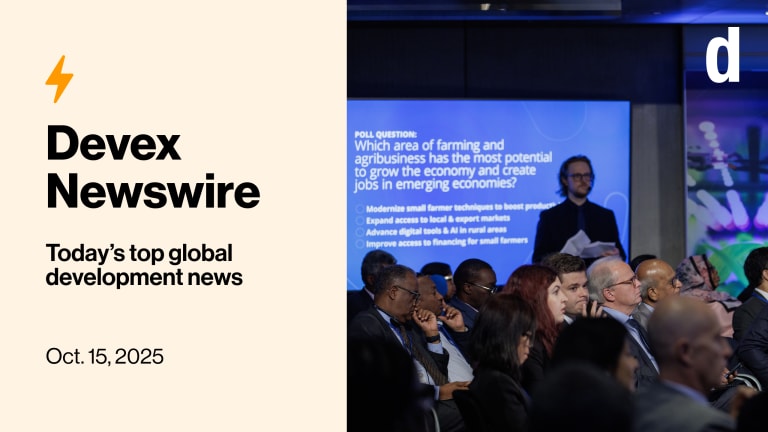
Six multinational companies, two governments and the World Bank announced a partnership Friday (April 23) in Washington to help countries use technology for development purposes.
“When you look at the world today, citizens are simply saying: Enough of leaders thinking they know all of the answers to our problems; we can find the answers to our problems,” said Obiageli Ezekwesili, the World Bank’s vice president for Africa. “There’s nothing that does this better than [information and communications technology].”
France and South Korea as well as Gemalto, IBM, L-1 Identity Solutions, Microsoft and Pfizer formally joined the World Bank’s eTransform Initiative (ETI), which initially will promote good governance and transparent procurement processes worldwide through telecom networks, computers, mobile phones and other technologies. Intel also is expected to sign an agreement with the bank, and the partnership remains open to other interested public and private entities.
“Government transformation is about change management facilitated by technology,” said Mohsen Khalil, director of the World Bank’s global information and communication technologies department. “This initiative will facilitate the exchange of lessons and experiences among various governments and industry players, to maximize impact and lower risks of ICT-enabled government transformation.
As an example of applying ICTs to development work, Jean Ping, chairperson of the African Union Commission, described farmers in Africa who receive updates on market rates for their crops, climate conditions and collection times via their mobile phones.
“The majority of people there are illiterate but all of them are covered by the mobile phone and they know how to use it,” he said. According to the World Bank, 65 percent of Africans now live within range of a wireless voice network.
Friday’s ETI launch event at the World Bank was part of the bank’s spring meeting, and was attended by senior officials from the bank, the private sector, the African Union and countries from Kenya to India.
“It’s always been public and private and we’re trying to just bring it together so we can give better service to the recipient country,” said Frank McCosker, managing director of global strategic accounts for Microsoft.
The Korean Trust Fund on ICT for Development provided seed funding for the global initiative. The companies primarily will make in-kind contributions to the ETI.
“The resources we’re committing are mostly around thought leadership and best practices,” McCosker said. “This is not a money thing, this is a non-commercial agreement. It’s around saying: How can we help them with stuff that we already do?”
The memoranda of understanding pinpoint ten sectors that partners will attempt to enhance through ICTs, according to McCosker. Those sectors include disaster management, education and tourism, among others.








